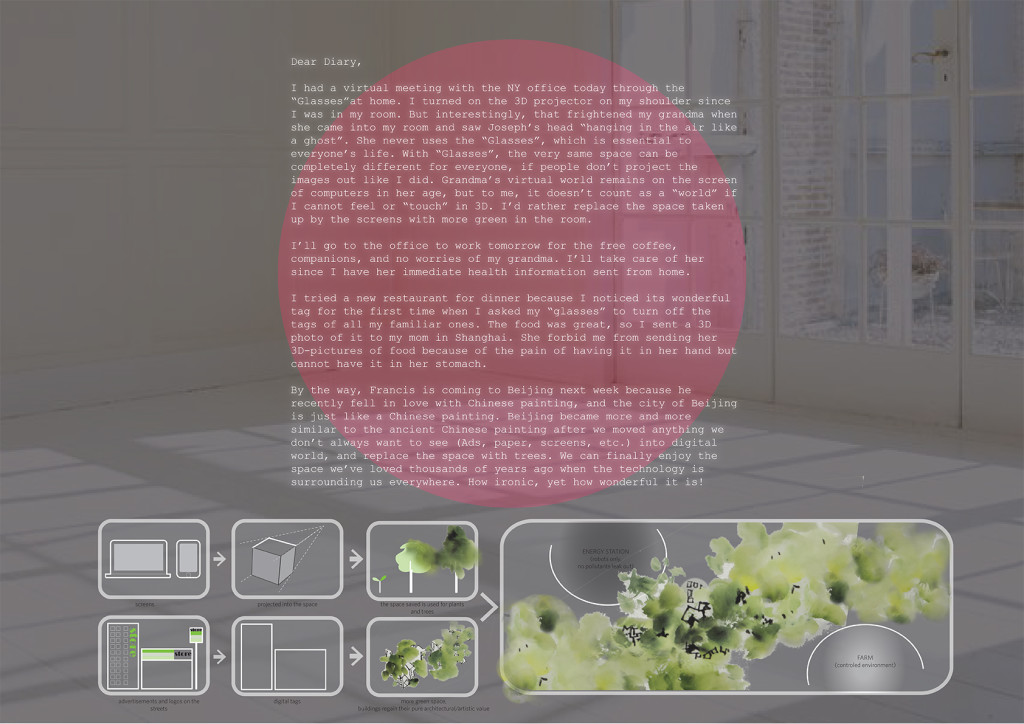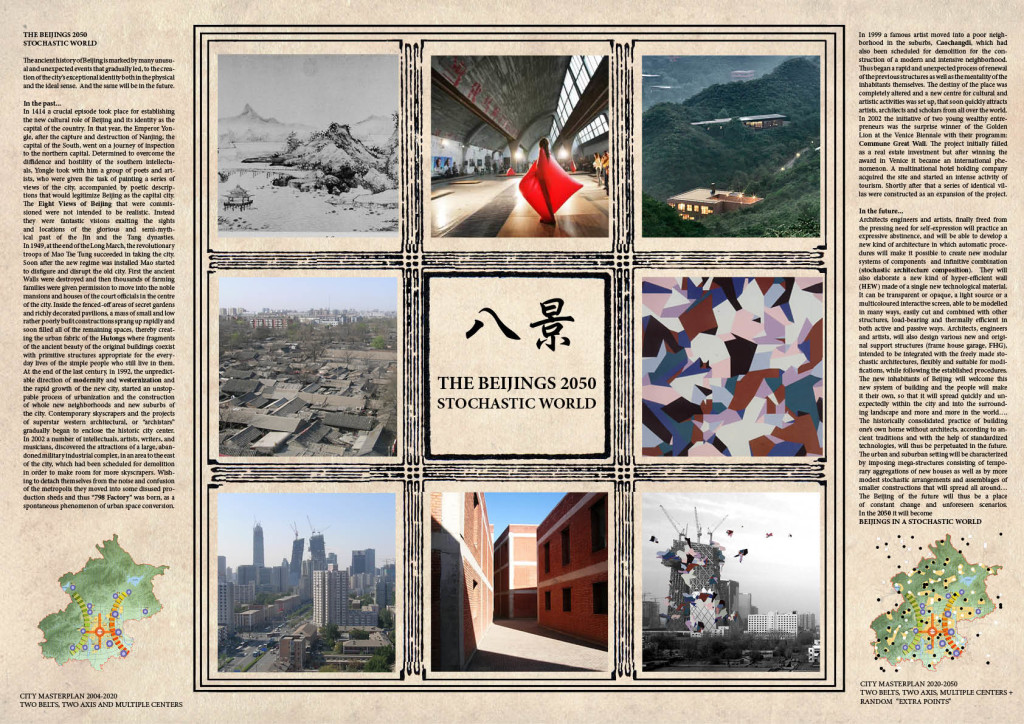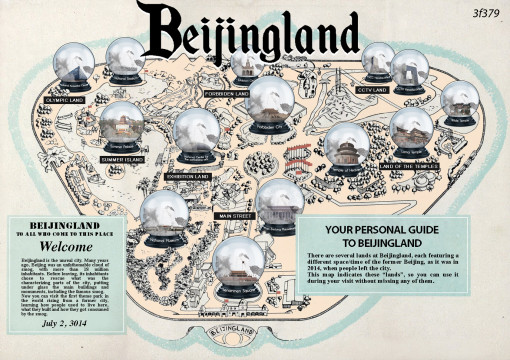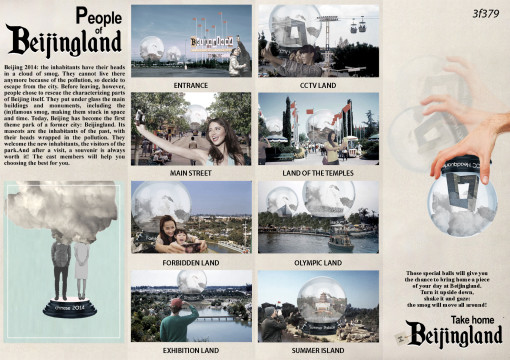Info:
Title: Beijingland - Code: 3f379Contest: Beijing / 2014
By: filippo quaranta - giulia lambiase
Views: 9319 Likes: 8
Votes:
Greg Lynn 9 Ai Weiwei 14 Sou Fujimoto 3 Eric de Broches des Combes 78.3
Beijingland
Beijing 2014: an unfathomable cloud of smog, with more than 18 million inhabitants. A problem that causes fresh socio-urban phenomena, able to redraw the city. The environmental defeat of its inhabitants represents the scenery imagined for the Chinese capital. A defeat that implies a massive runaway from the city. Before leaving, however, people chose to rescue the characterizing parts of Beijing itself. From here, the decision of putting under glass the main buildings and monuments, including the (in)famous smog. As in a Polaroid, the glass balls will take a picture of a complex phenomenon, made of both artistic and architectural beauty as well as of deterioration due to polluted air and to the neglect, making it stuck in space and time. The rest of the city, with its streets, its swarm of people, its activities of all kinds, is wearing out, going to pot. The nature takes it over again, regaining its role and changing the morphology. In this contradictory scenery, we are in front of what we decided to call, quoting T. S. Eliot’s “The Waste Land”, an “unreal city”. This unreal, however, brings back the spirit of commerce that has always distinguished the people of Beijing: completed the phase of abandonment, the ruined city becomes a destination for tourism, decomposed in thousands of pieces and sold, without exception – pollution included. That’s the reason why Beijing becomes one day “Beijingland”, the first theme park out of a former city. The people can experience the past of the city, reliving the memory in a mix of fun and culture. There are several lands at Beijingland, each featuring a different space/time of the former Beijing, as it was in 2014, when people left the city. All the visitors need is a map for discovering the different “lands” the park is divided into. It’s not an archaeological site, nor a ghost town; in a Country where contratictions are every day bigger, it’s just the ultimate level of communism mixed with capitalism: a conscious way of sharing (and selling) habits, structures and errors of the past keeping them alive, in a way. New inhabitants will come, visiting the park for understanding how the pollution destroyed life as it was centuries before. They will get aware of what their ancestors did and they will want to take home something to remember. “In the future, everyone will have the right to get a souvenir of the former Beijing!”








